Record: The Backbone of Productivity
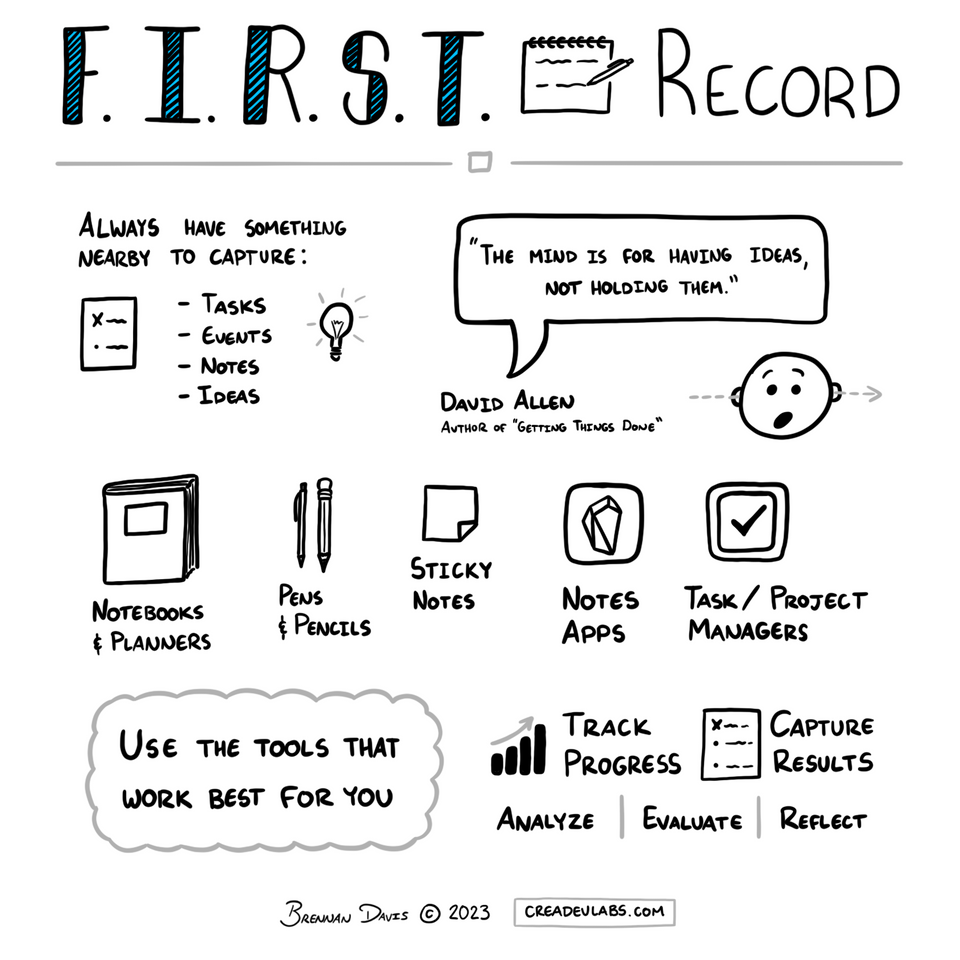
"The mind is for having ideas, not holding them."
-- David Allen, author of Getting Things Done
How often do you have a brilliant idea come to mind, and you think, "This is such a brilliant idea! There's no way I'll forget it!", but before you've even finished that thought, your world changing idea is gone?
Happens to me all the time.
While the human mind is an amazing thing beyond understanding, it's not a perfect machine. Ideas and thoughts can fly out of it as fast they fly in.
So how do you make sure you don't lose your ideas? You write them down!
Sounds simple enough, but it can be challenging. You may struggle with getting your thoughts down on paper. I know I have difficulty with this sometimes.
The best advice I can give you is this: write it down anyway.
What you write doesn't have to be a perfect transcription of the thoughts within your head. The important thing is getting them written down in a tangible form. You'll then have them to develop later.
You may wonder why this principle is "Record" instead of "Write". It's because Record means much more than writing. It encompasses the following:
- Capturing ideas
- Remembering ideas
- Developing ideas
- Visualizing data
- Analyzing data
Let's talk a bit about the practical ways of recording ideas and information. There are many ways to go about this. The simplest way is a sheet of paper or sticky note and a pen or pencil. These are great tools for rapid capture of ideas and information.
Notebooks or journals are another great option. They're most useful for long term recording. They make it easier to review notes in the future as they're all bound together in one place.
There are many ways you can organize a journal. At the very least you should have an index where you can write down what pages your different ideas are on. Make sure to number your pages, or buy a journal with them pre-numbered to make this easier.
In today's world, we're never too far from a digital device. They provide a wide range of possibilities for recording information.
There's digital handwriting with a stylus.
There's typing words out in a word processing program.
There's recording audio snippets.
There's recording video clips.
There's speech to text.
And there are many apps and programs out there that will do one, a few, or all these at once. The point is there are many ways to record information, and it's up to you to discover which is best for you.
As mentioned before, recording grants you the ability to see progress over time. Data can show you trends, help you understand what things are working, and what things aren't.
A great example of this is habit tracking. Say you set a goal to read a chapter of a book every day. You can mark off each day you read on a calendar. This gives you a handy visual of your progress. If you see you're not doing a habit several days in a row, evaluate and decide if you want to continue with that habit or not.
Recording is the backbone of productivity. It helps you remember the things you need to do and the ideas you've had. It provides a tangible way of reviewing and developing your thoughts further. And you'll be able to see the progress you make over time.
A couple of things to keep in mind:
- Ideas beget ideas. The more you record your thoughts, the more ideas you'll have, so keep at it.
- Remember the previous principle, Iterate. Try out different ways of recording, analog and digital, and see what works best for you.
- Nothing is written in stone. You can always go back and fix what you've written down later.
To help get you going, here's a few of the tools I use:

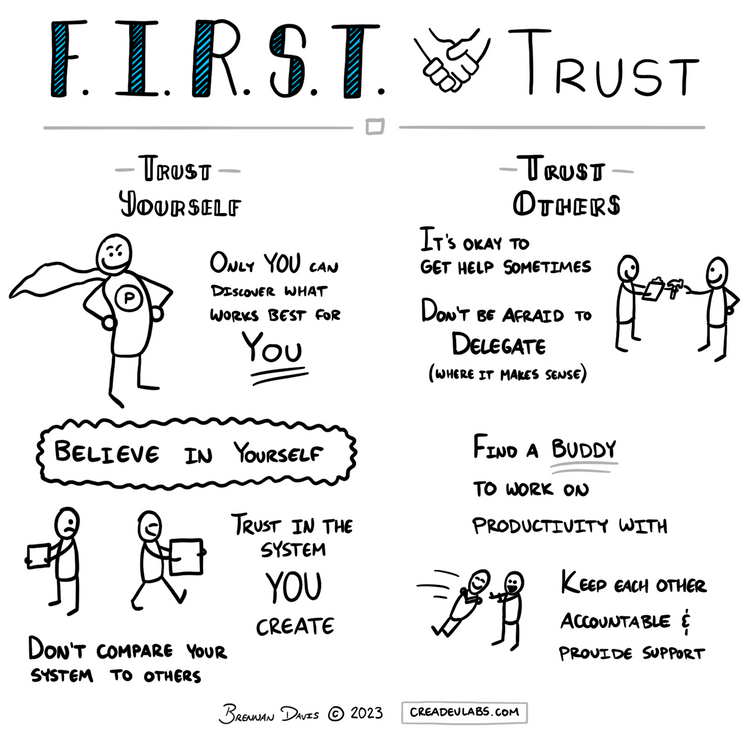
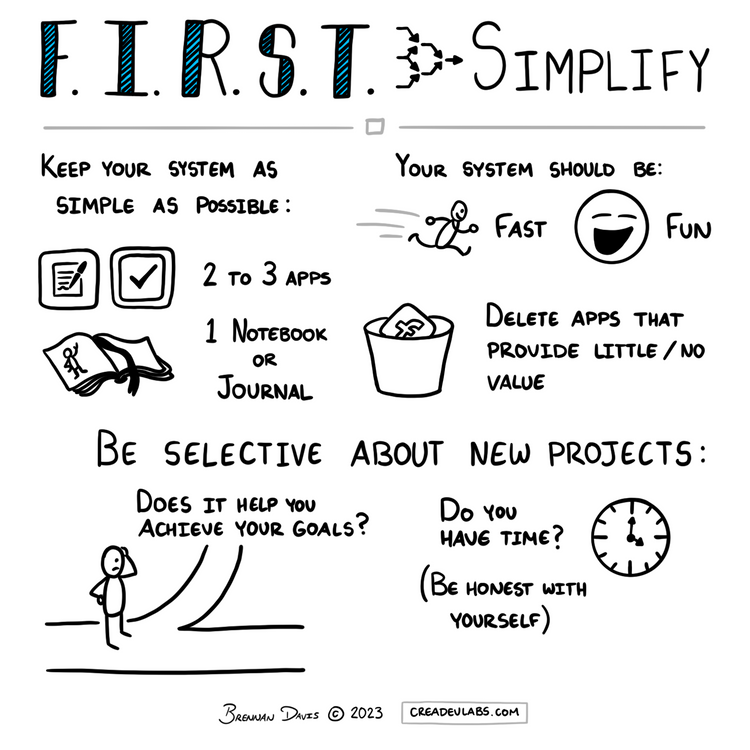
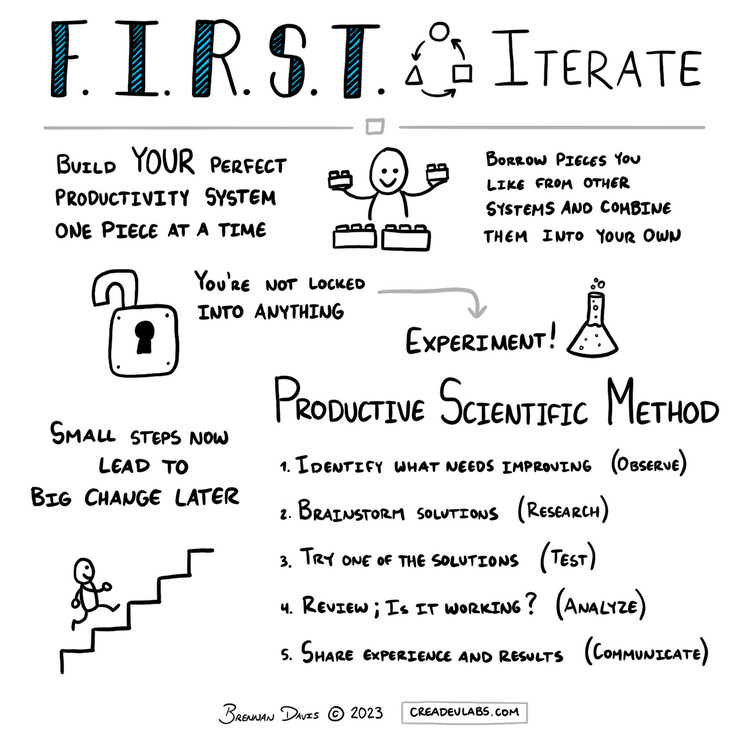
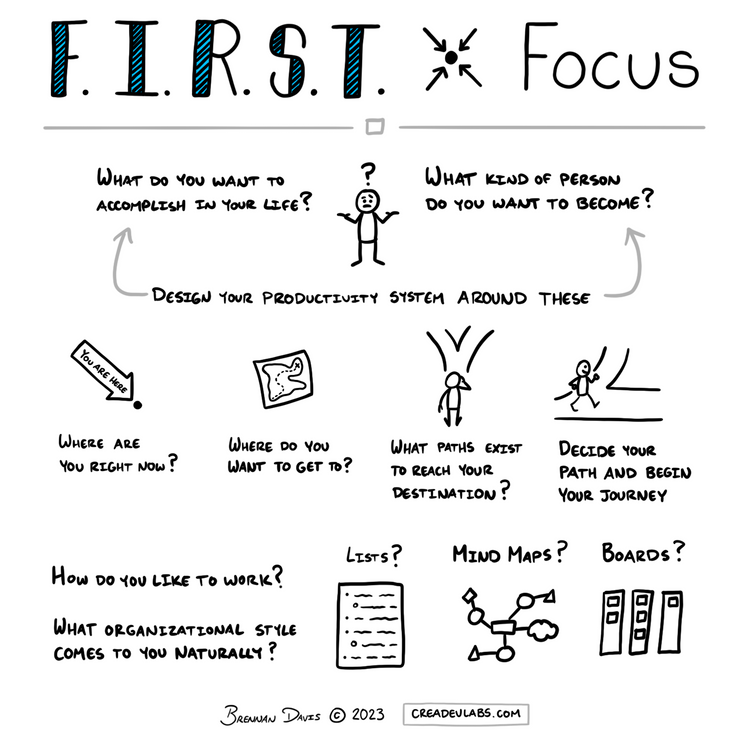
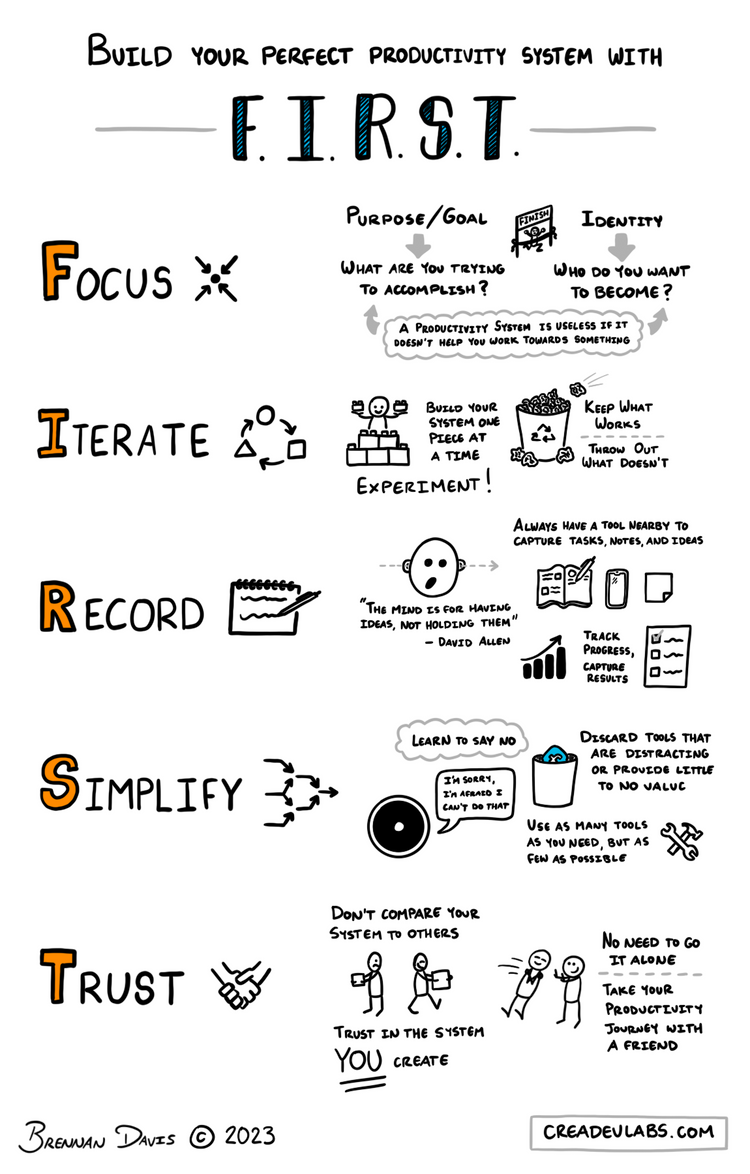
Member discussion